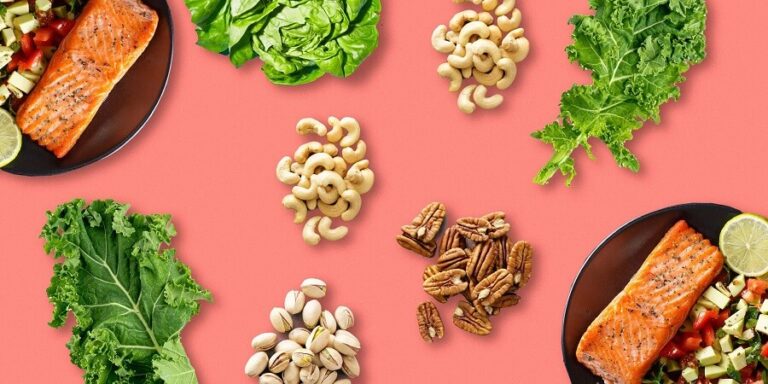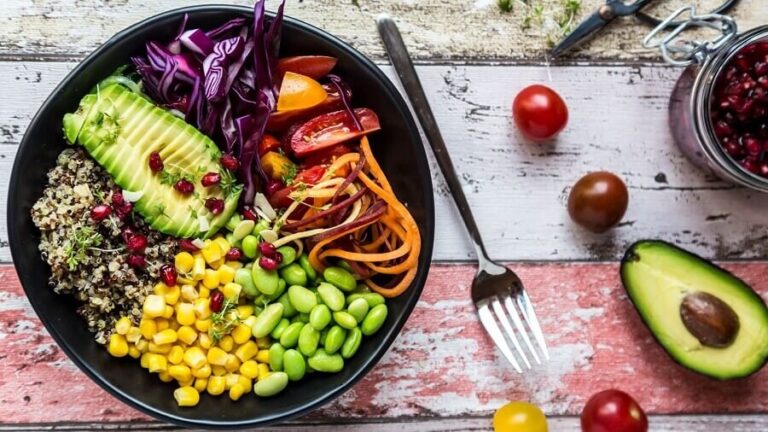Healthy eating is gaining more and more followers. When the goal is to lose weight and stay healthy, nutrition professionals most recommend this method.
However, understanding that it is healthy, balanced, and nutritious can confuse.
This article describes the rules of a healthy, healthy, and balanced diet.
Healthy Eating Rules – What Are They?
The first rule of thumb for healthy and healthy eating is diversity. If you eat the same type of food every day, sooner or later, you will have a shortage of a particular vitamin or trace mineral.
This healthy eating rule is based on getting most of the essential nutrients your body needs without thinking about their amounts.
The second rule of thumb for healthy eating is the balance of macronutrients: protein, fat, and carbohydrates. This is important to regulate hunger, where most mistakes are made.
Also, if you want healthy and balanced nutrition, be sure to avoid junk food, fried foods, and excess sugar. The rules of healthy eating are:
- Food diversity
- 55% carbohydrates, 15% protein, 30% fat
- Choose foods with high nutritional value
- Avoid excess sugar and refined flour
- Avoid red meats and sausages
- Yes, to foods with fiber
- No alcohol
- No trans fats
- Up to 10% saturated fat
Healthy and balanced nutrition for weight loss
To lose weight, you should not only think about excess calorie intake.
For example, high consumption of simple carbohydrates can throw your urge to eat out of control. For this reason, one of the rules of healthy eating, sugars should not exceed more than 10% of total daily calories.
In addition, having this habit is one of the leading causes of type 2 diabetes. If you want to stay healthy and lose weight, stay away from refined sugar.
Other healthy eating rules
Healthy eating begins with replacing the way you cook. Get into the habit of using the oven and boiling your meals. Learn to select which foods are high in nutritional value and include them in your diet.
Including vegetable oils such as olive oil is essential in a healthy diet. One of the rules that science has demystified is that you will gain weight by eating fat. Fats are necessary for the synthesis of hormones in your body, and if you need them, take care of the amount.
It is recommended to use raw oils; this will not only prevent the loss of vitamin E; it will not allow unwanted trans fats to form.
Another basic rule of thumb for healthy nutrition is to avoid foods with saturated or trans animal fats. According to the WHO’s healthy eating rules, these fats are carcinogenic. (5) At most, trans fats should contribute 2% of the total calorie intake.
Healthy Foods: What Are They?
Most natural foods are considered healthy foods.
However, the principles of healthy eating do not apply to everyone equally. Some people may be allergic to gluten or lactose. So defining a fit for everyone is impossible.
As a general rule, the podium winners in healthy foods are cereals and vegetables with a medium glycemic index, fruits, and foods with omega-3s, nuts, and seeds.
Remember that healthy and balanced nutrition is not about eating just one type of food. What makes it healthy is a good combination. Healthy food:
- Fruits and vegetables
- Seeds and nuts
- virgin oils
- protein sources – low-fat dairy meats, tofu
- Whole grains
What about unhealthy foods?
Most industrial products with long life and a long list of ingredients tend to fall into the category of unhealthy foods.
Avoiding this food group is a basic rule for healthy and balanced nutrition. They are high in sodium, saturated fat, and preservatives. Soft drinks like Coca-Cola and other beverages with excess sugar should also be avoided.
In addition, according to the WHO and FAO, processed meat products should not be consumed either. This is due to its potential probability of developing some types of cancer. This is one of the reasons why today there is a tendency to go on a vegetarian or vegan diet.
As for the rest of the meats, some studies claim that eating up to 400-600g of fresh meat can be considered healthy. (6)
Importance and benefits of a healthy diet
Believe it or not, your digestive system has a vast network of neurons, the largest in the body, closely associated with your emotions.
If you want to keep your body and mind healthy, a basic rule is to eat healthy and balanced.
Food fiber (also called dietetic fiber ) positively affects digestion. And they can help you improve nutrient absorption.
In addition, eating foods rich in fiber reduces insulin spikes in the body, and by keeping you fuller, you will feel less hungry. It is essential to know that fresh vegetables and even frozen ones are made up of fiber. The benefits of a healthy diet are:
- Ideal weight
- More productivity and performance
- Avoid going to the doctor
- Live longer
- Better mood and long-term well-being
Are sports supplements allowed in a healthy diet?
A basic rule in a healthy diet is understanding the importance of natural foods and not emphasizing sports supplements.
Avoiding taking multivitamins and other artificial supplements is one of the advantages of carrying out a healthy diet. Eating macaroni and cheese accompanied with a handful of vitamins is not an ideal dish for healthy and balanced nutrition.
In addition to being less economical, research has shown that synthetic vitamins have less absorption capacity than those contained in food. (4)
ABSTRACT
A healthy, healthy, and balanced diet should be based on vegetables, fruits, vegetables, sources of protein, and good fats.
A basic rule of thumb is to substitute fried and saturated animal fats with healthy vegetable oils or fats in balanced nutrition.
To eat healthily, you must increase the consumption of complex carbohydrates: including quinoa, buckwheat, and amaranth, and avoid sugar.
Eliminating processed meat products and trans fat is on the cover of the healthy eating book.
The main rule of healthy eating is diversity. As well as not being fully structured, a sin every so often is an excellent strategy to achieve continuity.







